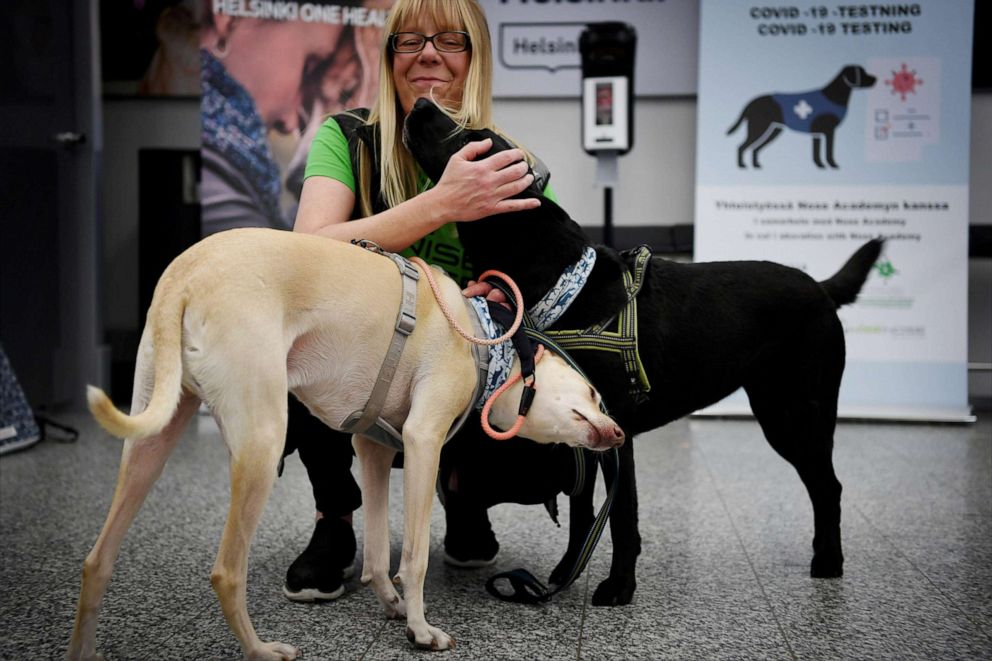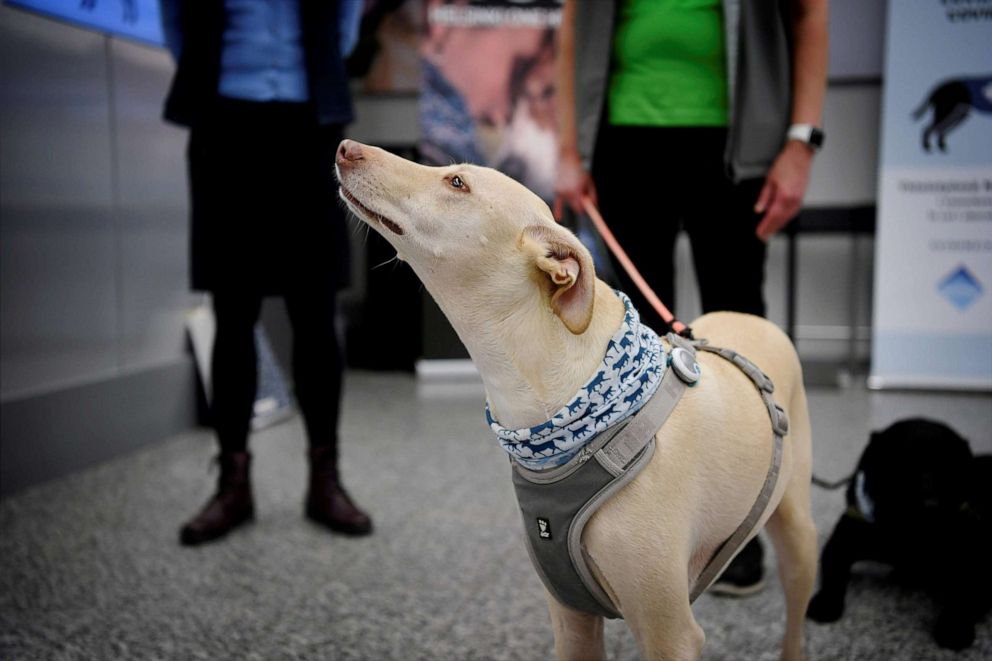COVID-19 canines: How dogs may help sniff out the coronavirus in humans
Helsinki Airport welcomed 10 dogs this week as part of a pilot program.
They say you can't teach an old dog new tricks, but trainers in Finland claim 8-year-old greyhound mix Kössi learned to identify a scent associated with COVID-19 in just seven minutes.
Helsinki Airport welcomed Kössi and nine other "coronavirus-sniffing dogs" as part of a pilot program this week meant to "speed up the process of identifying those infected with COVID-19."

"We are among the pioneers," Helsniki Airport director Ulla Lettijeff said. "As far as we know, no other airport has attempted to use canine scent detection on such a large scale against COVID-19."
Four dogs will work at the airport during a shift, but passengers getting tested will not have direct contact with the dogs.
They will be prompted to swipe their skin with a wipe and drop it into a cup, which is then given to the dog to smell.
"The service is mainly intended for passengers arriving from outside the country," Susanna Paavilainen, CEO of WiseNose Ry, University of Helsinki's DogRisk research, explained.

The airport said that according to preliminary tests conducted by a research group at the Faculty of Veterinary Medicine at the University of Helsinki, "dogs are able to smell the virus with almost 100% certainty."
In the U.S., testing is still underway to determine if dogs can truly sniff out the coronavirus. The University of Pennsylvania's School of Veterinary Medicine (Penn Vet) launched a pilot study in April that would take a group of dogs and expose them to COVID-19-positive saliva and urine samples in a laboratory setting.
Once the dogs learned the odor, investigators would then see whether or not the animals can discriminate between COVID-19 positive and negative samples in a lab setting, according to Penn Vet.
While the results of the study have not yet been released, Penn Vet called it "pioneering" saying it "sets the stage for dogs to be a force multiplier in the mission to detect COVID-19, particularly among asymptomatic patients, or hospital or business environments where testing is most challenging."
Both the Transportation Security Administration (TSA) and U.S. Customs and Border Protection (CBP) told ABC News they are not training their canines to detect COVID-19.




